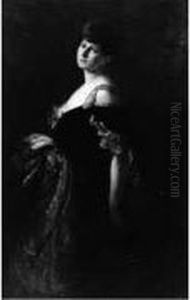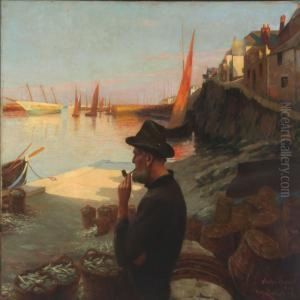Eugene Zigliara Paintings
Eugène Zigliara, born on April 14, 1833, in Bonifacio, Corsica, was a significant figure in the Catholic Church, known for his contributions as a philosopher, theologian, and a cardinal of the Roman Catholic Church. His full name was Tommaso Maria Zigliara, O.P., reflecting his membership in the Order of Preachers (Dominicans), which he joined at a young age, dedicating his life to religious service and scholarship.
Zigliara's intellectual prowess was evident early in his life, leading him to pursue an education in philosophy and theology. He became a prominent teacher at the College of Saint Thomas, the future Pontifical University of Saint Thomas Aquinas, Angelicum, in Rome, where he was deeply involved in the revival of Thomistic philosophy. This revival was part of a broader movement within the Catholic Church to return to the teachings of Saint Thomas Aquinas as a response to modern philosophical trends that were seen as incompatible with church doctrine.
In addition to his teaching duties, Zigliara's scholarly work made significant contributions to Catholic theology and philosophy. He was a member of the commission that prepared the Codex Iuris Canonici (Code of Canon Law), which was promulgated in 1917, long after his death. His work in this area helped to modernize and systematize Church law, making it more accessible and applicable to the contemporary world.
Pope Leo XIII elevated Zigliara to the cardinalate in 1887, recognizing his contributions to the Church and his intellectual achievements. As a cardinal, Zigliara continued to influence Catholic thought, particularly through his involvement in the preparation of the encyclical Aeterni Patris. This encyclical, issued by Leo XIII, called for the restoration of Christian philosophy with St. Thomas Aquinas as its model, a cause to which Zigliara had devoted much of his career.
Cardinal Zigliara's health began to decline in the early 1890s, and he passed away on May 11, 1893, in Rome. His legacy, however, lives on through his writings and the impact he had on the direction of Catholic philosophical and theological thought. Zigliara is remembered as a key figure in the Thomistic revival and as a bridge between the intellectual traditions of the Church and the challenges of the modern world.



